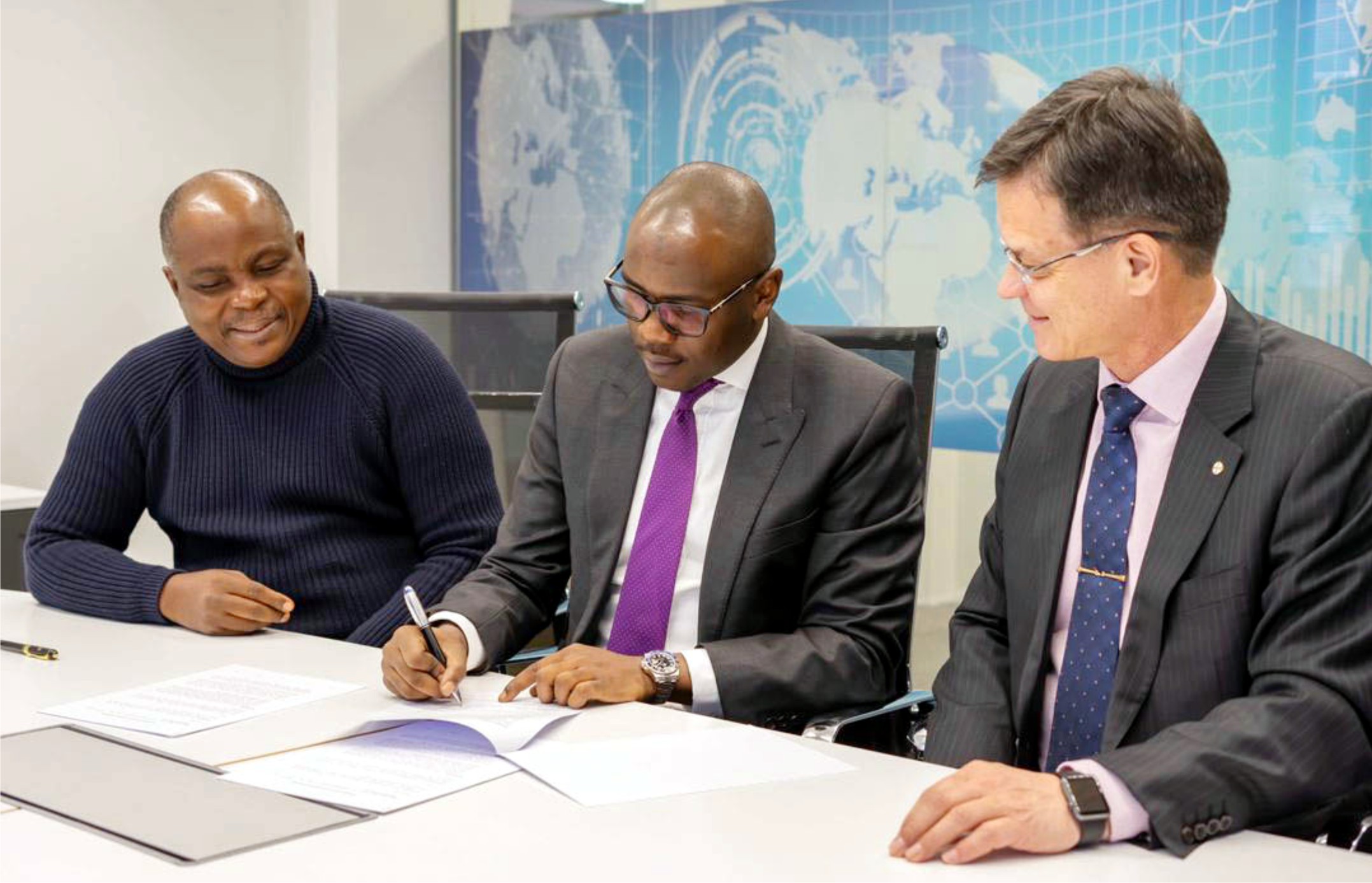Business
Remove VAT From Diesel, Tax Committee’s Boss Urges …MDAs may be stopped from tax collection

The Chairman, Presidential Committee on Tax Policy and Fiscal Reforms, Taiwo Oyedele, has said stated the need to remove Value Added Tax (VAT) on Automotive Gas Oil (AGO), popularly known as diesel to offset the impact of removal of petrol subsidy.
He said in order to ease the economic strains warranted by the removal of fuel subsidy, the committee need consider suspending VAT on diesel.
Oyedele, formerly a Fiscal Policy Partner and Africa Tax Leader at Price Waterhouse Coopers (PwC), emphasised the urgency to address pressing economic concerns within the initial 30 days of the committee’s tenure.
“Personally, for example, this is not promising that it would be done. I think that we should suspend VAT on diesel because we removed fuel subsidy on petrol and prices are going up. We are going to table it before the committee. These are the things we want to do in the first 30 days”, he said.
Oyedele’s committee was inaugurated by President Bola Tinubu in Abuja on Tuesday and is charged with accomplishing crucial tax reforms, streamlining and harmonisation of tax laws, executive order issuance, regulatory implementation, and more over the following six months.
Although the committee has a one-year timeline for policy implementation, Oyedele clarified that the 30-day, six-month, and one-year milestones run concurrently.
The committee also intends to address excessive bank charges and reduce the exorbitant number of levies and taxes paid by businesses.
Oyedele revealed that businesses are burdened by as many as 65 to 70 different taxes and levies, while the committee’s objective is to curtail this number to around 10.
He said the Nigeria Customs Service (NCS) and 62 other Ministries, Departments and Agencies (MDAs) of the Federal Government should not collect revenue directly.
He, however, said the revenue collecting agencies of the federation can continue to collect revenue until a definite decision is taken to stop the practice.
He said the details of stopping revenue collecting agencies other than the Federal Inland Revenue Service (FIRS) from collecting such revenues “will be discussed by the committee with extensive engagements with key stakeholders including the affected MDAs”.
According to him, “it’s still a long way as many of the MDAs revenue collection functions are enshrined in their establishment laws”.
Oyedele had on Channels TV had hinted that the Federal Inland Revenue Service (FIRS) will now be responsible for collecting revenue for the MDAs.
He explained that this change will bring several benefits, including improved efficiency and reduced collection costs.
Oyedele stated that the current cost of collection is high due to the numerous agencies involved, noting that the MDAs are being distracted from their primary functions and are not equipped to efficiently collect revenue.
By transferring the revenue collection duties to the FIRS, Oyedele believed two advantages can be achieved, saying there will be a reduction in collection costs and an improvement in efficiency, and that the MDAs can focus on their core responsibilities, ultimately benefiting the economy.
Oyedele emphasized that agencies like Customs should concentrate on trade facilitation and border protection, while the NCC should solely regulate telecommunications.
Revenue collection, he said, can be outsourced to specialized entities like the FIRS, leading to increased transparency and accountability in how funds are utilized.
Additionally, Oyedele noted the existence of a significant tax gap, estimated to be around N20 trillion or more, stressing the importance of focusing on major taxes such as Value Added Tax, Corporate Income Tax, and Personal Income Tax.
“Many individuals, particularly the middle class and elite, are not fully compliant with their tax obligations, with some only paying a fraction of what they should be contributing”, he said.
According to him, the Federal Inland Revenue Service (FIRS) is best-suited to collect revenue for the MDAs.
“Ironically, our cost of collection is one of the highest. And the reason for that is that we’ve got all manners of agencies. The Federal Government alone, we have 63 MDAs that were given revenue targets last year, no; actually in the 2023 budget”, he said.
“And two things that would come up from that: on one hand, these agencies are being distracted from doing their primary function which is to facilitate the economy. Number two, they were not set up to collect revenue, so, they won’t be able to collect revenue efficiently.
“So, move those revenue collection function to the FIRS. It has two advantages: the cost of collection and efficiency will improve, these guys will focus on their work, and the economy will benefit as a result.
Continue Reading
Business
NPA Assures On Staff Welfare
The Managing Director, Nigerian Ports Authority (NPA), Dr. Abubakar Dantsoho, has said the management will continue to accompany its port infrastructure and equipment modernization drive with the development of the welfare of its personnel.
Dantsoho made the disclosure recently while responding to the commendation by the Maritime Workers Union (MWUN) and the senior Staff Association of Statutory Corporations and Government-Owned Companies (SSASGOC) on the clearing of the age-long problem of employee stagnation, when the union paid him a courtesy visit at the Authority’s headquarters in Lagos.
A Statement by NPA’s General Manager Corporate & Strategic Communications, Mr. Ikechukwu Onyemekara, quoted Dantsoho as saying, “our Port infrastructure and equipment modernization drive will go hand-in-hand with continuous staff welfare improvement”.
The NPA MD disclosed that human capital development constitutes the key strategy for creating and sustaining superior performance under his watch, adding that “talent development constitutes a critical success factor for the actualization of the big hairy audacious goals we have set for ourselves especially in the area of Port competitiveness.
“The only way we can meet and indeed exceed stakeholders’ expectations is to deepen the competencies of our human resources assets and boosting their morale.”
Speaking further, Dantsoho commended the Honourable Minister of Marine & Blue Economy, Adegboyega Oyetola, for approving the strategic proposal of the Dantsoho-led Management team that solved the over a decade-long problem of lack of promotion that had fuelled industrial disharmony.
“I must specially appreciate our amiable Minister for graciously approving the multi-pronged stratagem we deployed that cleared all outstanding cases of employee stagnation by conducting examinations in one fell swoop and instituted timelines to forestall a recurrence of such anomaly”, he sad.
Speaking on behalf of the joint maritime labour unions, the President of Senior Staff Association of Statutory Corporations & Government-Owned Companies (SSASCGOC), Comrade Bodunde stated, “In addition to clearance of the backlog of stagnated promotions, we also wish to express our appreciation for the increase in productivity bonuses, provision of end-of-year welfare packages for staff, and the revision of the Financial Guide to the Condition of Service, which now addresses our members’ concerns about inflationary pressures.”
Nkpemenyie Mcdominic, Lagos
Business
ANLCA Chieftain Emerges FELCBA’s VP
National Secretary of the Association of Nigerian Licensed Customs Agents (ANLCA), Elder Olumide Fakanlu, has been elected Vice President of the Federation of ECOWAS Licensed Customs Brokers Association (FELCBA).
The election took place during the FELCBA Congress, held from Tuesday, June 17th to Thursday, June 19th, 2025, in Freetown, Sierra Leone.
Fakanlu’s emergence as Vice President marks a significant achievement for Nigeria within the regional customs brokerage community.
Apart from Fakanlu, Secretary of the Seme Chapter of ANLCA, Austin Nwosu, was also elected, securing the role of Secretary of Relations with Institutions.
The Nigerian delegation played an active role in the congress, with Michael Ebeatu nominated as a member of the electoral officer team, ensuring a fair and transparent election process.
The three-day congress concluded with delegates undertaking a visit to the Sierra Leone Port, offering insights into the host nation’s maritime operations, followed by a recreational trip to the Tokeh Beach.
The newly elected executives are expected to lead FELCBA in its efforts to harmonize customs brokerage practices, promote trade facilitation, and advocate for the interests of licensed customs brokers across the ECOWAS sub-region.
Nkpemenyie Mcdominic, Lagos
Business
NSC, Police Boost Partnership On Port Enforcement
In a bid to enhance more enforcement in the nation’s Port, the Nigerian Shippers’ Council (NSC) has reaffirmed its commitment to stronger inter-agency collaboration with the Nigeria Police Force (NPF).
The Council said the collaboration is aimed at enhancing stronger enforcement, compliance and improve operational efficiency across Nigeria’s ports.
Executive Secretary/Chief Executive Officer of NSC, Dr. Pius Akutah, made this known during a visit to the Inspector-General of Police, Dr. Kayode Adeolu Egbetokun, at the Force Headquarters, Abuja.
The visit, which he said, focused on strengthening institutional synergy, comes in the wake of growing responsibilities for the NSC under the newly created Ministry of Marine and Blue Economy.
Akutah emphasized the critical role of security agencies in supporting port operations and ensuring regulatory compliance.
He called for the posting of police officers to assist the Council’s monitoring and enforcement teams at key port locations including Lagos, Warri, Onne, Port Harcourt, and Calabar.
“The posting will complement the activities of our revived task teams and enhance our ability to enforce standards across the maritime logistics chain”, he said.
Earlier, the Inspector-General of Police, Dr. Egbetokun, assured the Council of the Force’s readiness to continue supporting the growth of the maritime sector.
The IGP acknowledged that compliance enforcement is essential to the successful implementation of Nigeria’s Blue Economy objectives.
“The NSC and NPF are expected to deepen collaboration in the months ahead, with a shared focus on building a secure, efficient, and competitive port environment”, to the IGP emphasized.
Chinedu Wosu
-

 News1 day ago
News1 day agoCourt Sentences Gospel Singer To Death For Killing Girlfriend In Nasarawa
-

 Featured24 hours ago
Featured24 hours agoTinubu Signs Four Tax Reform Bills Into Law …Says Nigeria Open For Business
-
Sports1 day ago
Olympic Day Sparks Nationwide Fitness Fever
-

 Nation1 day ago
Nation1 day agoOgoni Stakeholders Hail Zabbey’s Performance
-
Sports1 day ago
I Joined Saudi League To Win Titles – Senegal Keeper
-

 Featured1 day ago
Featured1 day agoSenate Issues 10-Day Ultimatum As NNPCL Dodges ?210trn Audit Hearing
-

 News1 day ago
News1 day agoWDD: Tinubu Seeks Global Action On Drug Abuse
-

 News24 hours ago
News24 hours agoShettima In Ethiopia For State Visit

